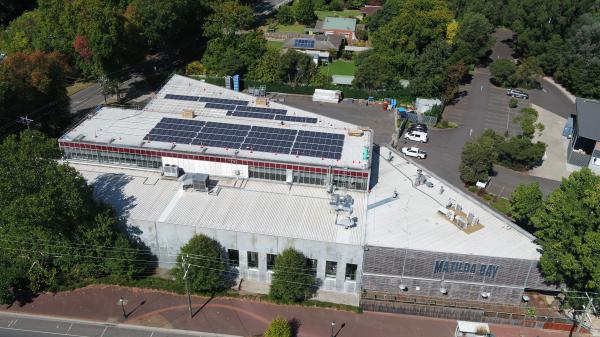
By Renee Wood
Matilda Bay Brewery has reached one of its biggest sustainability goals, after receiving the certification the business is carbon neutral.
James Aris from Matilda Bay said it’s been a goal for the business since it was founded in 2019.
“Beer is a natural product, it’s fundamentally water, malted barley, hops and yeast – that’s it. It follows that the better the environment around you, the better the quality the output is going to be,” James Aris said.
Last financial year the business generated 622 tonnes of emissions, equivalent to 15,700 coffee cups or 2.8 million road miles and this year that has all been offset.
“All food and beverage production is energy intensive and a resource intensive process, so it is our responsibility to try and be as efficient and effective at getting the best product for the best amount of energy that goes in.”
Becoming carbon neutral means to calculate your carbon emissions and offset them by 100 per cent through sustainable measures.
Matilda Bay achieved the certification through a whole ecosystem of practices, first starting with running off renewable energy with 248 solar panels on the roof and using a sustainable energy provider.
The business also received a small grant from the State Government to conduct an energy audit on their processes to learn more about their carbon footprint.
“Essentially we pulled all that together for South Pole to analyze and calculate what our emissions were over the past financial year and that gave us the amount that we needed to offset and we did that by purchasing some carbon credits in certain projects that are environmentally positive,” Paul O’Brien from Matilda Bay said.
The carbon credits were purchased for two projects, one in Victoria with EcoAustralia restoring the Annya State Forest in south-western Victoria and the other went to a hydro energy project in Cambodia.
Sourcing locally to reduce food miles and diverting waste are also part of how the business achieved the certification.
James and Paul said they see carbon neutrality as a normal practice that all businesses should aspire to achieve.
“We don’t want to really pat ourselves too much on the back about this process, it’s business as usual and now we’re looking ahead to what else we need to do to either reduce our emissions or influence our suppliers to try and reduce their emissions as well,” James said.
They’ve noticed sustainable practices are becoming highly sought after by consumers and dedicated wholesalers looking to purchase stock from environmentally conscious businesses.
“Retailers and the pub groups that we work with they’re increasingly interested in working with sustainable businesses. So I think we’re starting to see consumers and trade interest increase in doing sustainable business.”
Now the brewery will be looking to work with its suppliers to encourage similar practices where possible.
“We want it to become the norm for most of these businesses to have this certification, and the more businesses that get that the more acceptable it will be,” Paul said.






